'Lifesaver' for people with HIV
(Baonghean) - On average, the total cost of HIV/AIDS prevention in our country is about 1,500 billion VND/year, mainly based on funding and support from international projects. However, in 2017, this funding source will be completely cut off. In that context, health insurance is the "lifesaver" for patients.
Immediately after the Ministry of Health issued Circular No. 15 dated June 26, 2015, guiding the implementation of health insurance examination and treatment for people infected with HIV and people using HIV-related medical services, Nghe An promptly issued a system of documents and built a system of medical examination and treatment facilities to treat infected people.
As of March 31, the province has built 23 HIV care and treatment facilities located in 23 examination rooms and departments of hospitals in 21 districts, cities and towns; transferred more than 5,000 HIV-infected patients to treatment at the new facilities instead of being treated at 12 district health centers and non-public facilities without medical examination and treatment functions as before.
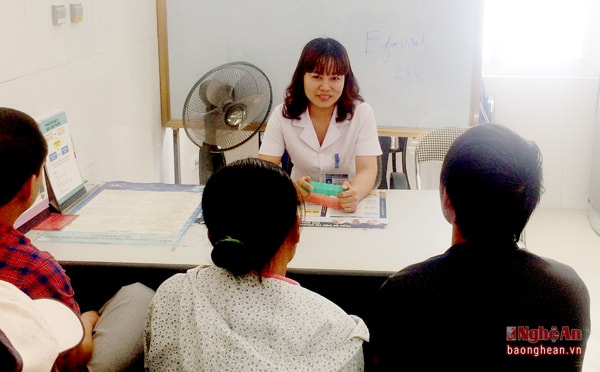 |
| Examination and consultation for HIV-infected patients at the Provincial General Hospital. |
Ms. Nguyen Thi HY (Con Cuong district), who is being treated at the HIV clinic of Tay Nam General Hospital, said: “I was infected with HIV from my husband. For nearly 7 years now, I have been treated with ARV drugs and have received full care, so my health is good. For HIV patients like me, a health insurance card is very necessary. In the past, although HIV patients without a card were still provided with full ARV drugs, the cost of treatment for opportunistic infections and testing costs will not be supported.”
In fact, arranging for HIV-infected patients to be examined and treated at the outpatient department of hospitals has been a good measure to prevent discrimination. Similarly, the health insurance cards of HIV-infected patients are also not discriminatory. HIV/AIDS patients who are ethnic minorities, near-poor people, etc. are all supported with the correct contribution level according to the Law on Health Insurance amended and supplemented in 2014.
Dr. Nguyen Hong Truong - Director of Vinh City General Hospital said: "Currently, the number of patients being treated at the hospital is 122, of which 55% have health insurance cards. The rate of HIV-infected people with health insurance cards is increasing thanks to the promotion of counseling, and patients are clearly aware of ensuring their health care rights."
Currently, Nghe An Health Department has screened 1,183/3,455 HIV patients being treated at medical facilities, of which the proportion of HIV patients with health insurance cards accounts for 56.55%. However, through general assessment, the proportion of HIV patients with health insurance cards is still much lower than the province's health insurance coverage rate (over 80%).
The reason is that many HIV patients (not in the priority group) are drug addicts, do not have a stable, sustainable livelihood... so accessing the health insurance policy is difficult. On the other hand, most of those who do not have a card are often migrants, absent from the locality at the time of making the health insurance card. Mr. Nguyen Van A, in Anh Son district, said: "Previously, if you wanted to get HIV treatment medicine, you had to go to Vinh, and did not need to declare a specific address. Now, when you use a health insurance card in your locality, it means that all personal information and address are exposed. If everyone knows they are HIV-infected, who knows what will happen."
In fact, the concerns of Mr. Nguyen Van A and many other patients are well-founded. When implementing health insurance, patients may have to go to the hospital for examination and treatment, which will raise the issue of information security.
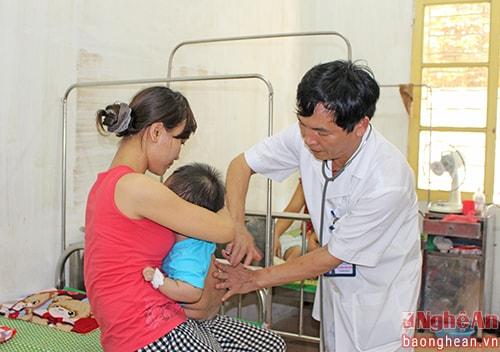 |
| Examination and consultation for HIV-infected children at Nghe An Obstetrics and Pediatrics Hospital |
Dr. Trinh Hung Tien - Deputy Director of the HIV/AIDS Prevention Center said: "HIV/AIDS stigma is no longer as severe as before, but HIV-infected patients themselves still carry a lot of complexes. To eliminate this concern, the Nghe An Health Department has thoroughly implemented the requirement to keep patient information confidential and secure.
Patients can be completely assured because this is a matter of medical ethics for doctors and medical facilities. Moreover, patients with health insurance cards have the right to choose where to register for initial medical examination and treatment; currently, health insurance has been connected, patients in one locality can choose to have medical examination and treatment in another locality in the province...”.
If an HIV/AIDS patient does not have a health insurance card, when examining and treating a patient, they must pay for their own blood tests (regularly every 6 months) and other biochemical tests, and pay for opportunistic infection drugs themselves - This reality shows that health insurance is a solid foundation for treatment, reducing the risk of infection. Therefore, to achieve the goal of Nghe An being one of the first 5 provinces in the country to quickly resolve HIV/AIDS, the province also needs to have a support policy for those who have difficulty in paying for health insurance.
Thanh Son


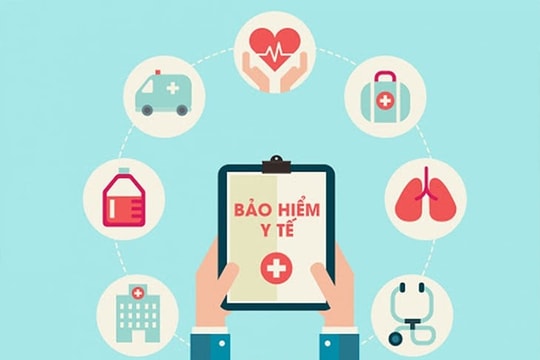

![[Infographic] Những thay đổi trong thủ tục khám, chữa bệnh bảo hiểm y tế từ 1/1/2025 [Infographic] Những thay đổi trong thủ tục khám, chữa bệnh bảo hiểm y tế từ 1/1/2025](https://bna.1cdn.vn/thumbs/540x360/2025/01/11/uploaded-thanhthuybna-2023_07_29-_bna-cac-co-so-y-te-deu-da-ket-noi-lien-thong-du-lieu-kham-chua-benh-va-thanh-toan-bao-hiem-y-te-anh-thanh-chung-938.jpg)
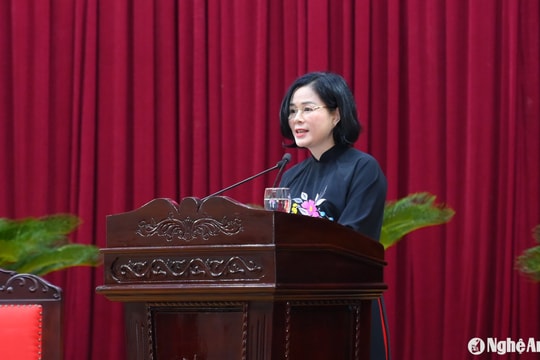
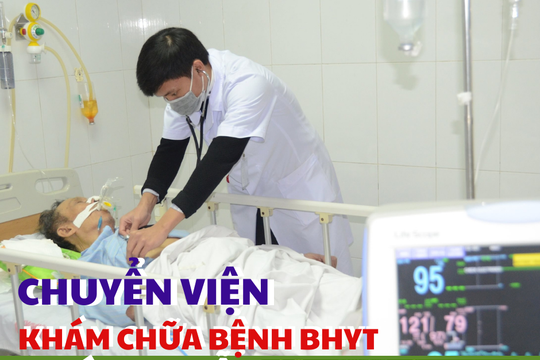
![[Infographics] Dấu ấn 10 năm thực hiện Luật Sửa đổi, bổ sung một số điều của Luật BHYT số 46/2014/QH13 trên địa bàn tỉnh Nghệ An [Infographics] Dấu ấn 10 năm thực hiện Luật Sửa đổi, bổ sung một số điều của Luật BHYT số 46/2014/QH13 trên địa bàn tỉnh Nghệ An](https://bna.1cdn.vn/thumbs/540x360/2024/12/02/lanh-dao-bhxh-tinh-va-doan-thanh-nien-ra-quan-tuyen-truyen-bhxh-bhyt.-anh-thanh-hien.jpg)
